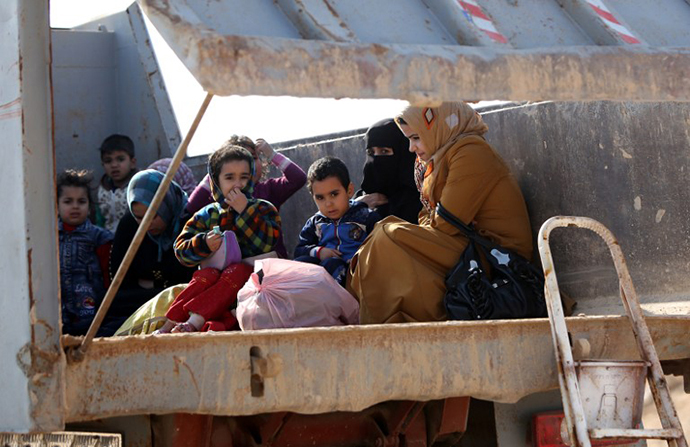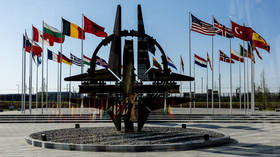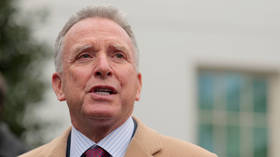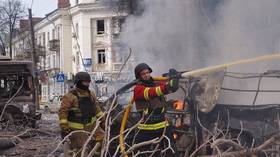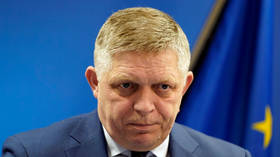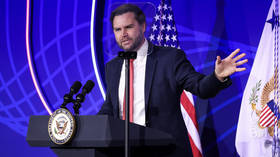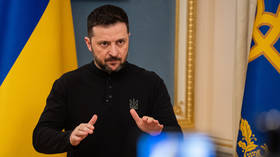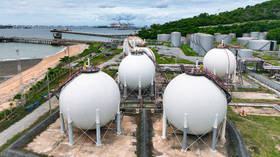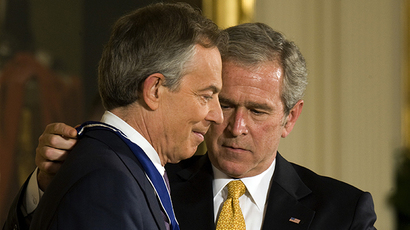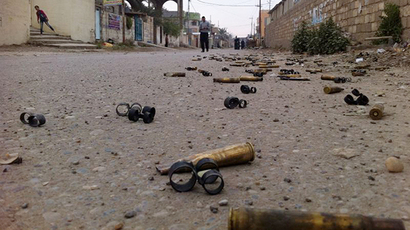Iraqi PM urges Al-Qaeda to lay down arms after airstrike kills 25 insurgents
The Al-Qaeda militants, who seized the cities of Fallujah and Ramadi last week, may receive a pardon if they give up those cities without a fight, Iraqi Prime Minister Nuri Maliki said in a televised address.
The Iraqi army has deployed tanks and artillery to the besieged western province of Anbar as they prepare to retake Fallujah from the Al-Qaeda-affiliated Islamic State of Iraq and the Levant (IS) fighters.
But al-Maliki said bloodshed can still be avoided, calling on the
people, who were “lured to be part of the terrorism machine
led by Al-Qaeda to return to reason,” AP reports.
If his plea is heard, the government will “open a new
page” to settle the cases of those who agree to lay down
their weapons, he added.
Another way to avoid the use of government force in Fallujah,
according to Maliki, is for the local tribes “to announce
their readiness to confront Al-Qaeda and expel it,” which
they already did during the ‘Awakening’ after the US-led invasion
of Iraq in 2003.
The militant group now in control of Fallujah is known as the
most radical jihadist wing of the Syrian rebels. The Islamic
State of Iraq and the Levant roots go back to the early years of
the Iraq War. It was established in April 2004 by Sunni
extremists, and then pledged allegiance to Bin Laden.
At that time, it was called Al-Qaeda in Iraq. Two years later it
was rebranded as the Islamic State of Iraq. In 2013, it gained a
strong presence in northern Syria, adding ‘Levant’ to its name.
During his weekly address, the PM voted to go on with the
“sacred war” against Al-Qaeda, which will only conclude
in “uprooting this corrupted organization.”
Maliki has called the attempts by the Islamists to retake
territory in order to create a Sunni religious state straddling
its border into Syria’s rebel-held provinces “a dream of
Satan.”
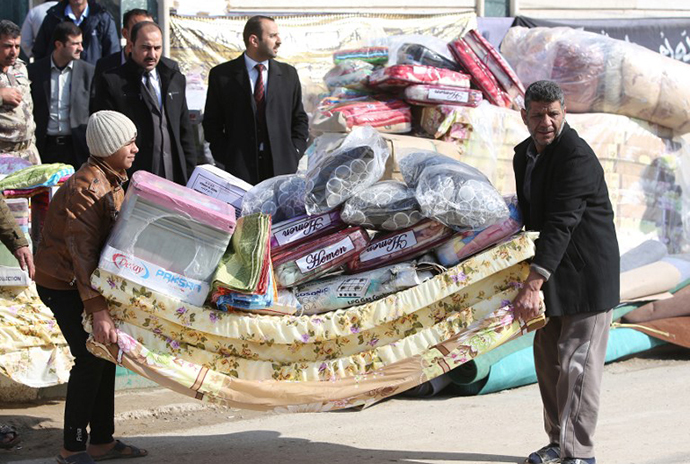
With a massive siege of Fallujah looming, which the militants
proclaim the capital of their Islamic state, the government
aren't hesitating to use force against Al-Qaeda elsewhere in
Anbar province.
25 Islamists were killed as the Iraqi air force struck a
militant-run operations center on the outskirts of Ramadi, Gen.
Mohammed Askari told AFP.
The airstrike was ordered after clashes 12 miles west of
Fallujah, which were provoked by the insurgents capturing an army
officer and four soldiers on Tuesday.
Thousands flee Fallujah ahead of siege
13,000 families have left Islamist-held Fallujah in anticipation
of the siege by the government forces, the Iraqi Red Crescent
told AFP.
The anti-terrorist move by the Iraqi government may be even more
deadly than the actions of terrorists themselves, Brian Becker,
director of Anti-War Answer Coalition, warned.
“People of Fallujah have been through this before. In 2004, twice
the US marines committed huge war crimes against the people of
Fallujah. They called Fallujah a ‘kill zone’ – anything that
moved was killed,” he told RT.
In such conditions, it was the city’s residents who died and
suffered the most, he stressed.
“Of course, they don’t want to live under Al-Qaeda, but do
they want to live under these kind of military assaults paid for
by the US, with arms from the US, carried out by the Maliki
government, which has also been brutal against the residents of
Fallujah? I don’t think so,” Becker said.
